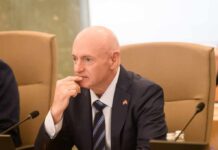
A sweeping federal decision to halt nearly half a billion dollars in vaccine funding signals a dramatic reversal in America’s pandemic strategy.
Story Snapshot
- The Department of Health and Human Services (HHS), led by Secretary Robert F. Kennedy Jr., has canceled $500 million in contracts for mRNA vaccine development.
- This move immediately halts new projects and disrupts 22 ongoing vaccine initiatives, with only some late-stage contracts allowed to finish.
- Public health experts and biotech leaders warn the decision undermines U.S. readiness for future outbreaks and risks ceding global vaccine leadership.
- The policy shift is driven by safety concerns about mRNA technology, despite overwhelming scientific evidence supporting its effectiveness and safety.
Major Funding Cuts Reshape U.S. Vaccine Policy
HHS announced on August 6, 2025, that it will wind down mRNA vaccine development under the Biomedical Advanced Research and Development Authority (BARDA). This affects approximately $500 million in contracts, including those with leading biotech firms across the country. The policy, championed by Secretary Robert F. Kennedy Jr., means no new mRNA vaccine projects will be funded, with only a handful of late-stage contracts allowed to conclude.
Health and Human Services Secretary Robert F. Kennedy Jr. announced he is cancelling contracts and grants worth nearly $500 million earmarked to develop mRNA vaccines. (Photo: Anna Moneymaker via Getty Images)https://t.co/t0430daDzv pic.twitter.com/Ov8Auyyhcd
— Forbes (@Forbes) August 6, 2025
Secretary Kennedy’s decision is rooted in longstanding concerns about the safety of mRNA vaccine platforms. This rationale places the administration at odds with the mainstream scientific community, which maintains that mRNA vaccines from companies like Pfizer-BioNTech and Moderna prevented millions of deaths and hospitalizations during the COVID-19 crisis.
Watch: RFK Jr. cancels $500 million in funding for mRNA vaccine development
Stakeholder Concerns and Industry Fallout
Biotechnology companies, particularly those specializing in mRNA technology, now face deep uncertainty and potential financial losses as federal contracts evaporate. Many of the 22 affected projects were focused not only on COVID-19 but on developing vaccines for other respiratory viruses like influenza and RSV. Industry leaders and researchers, such as Stanford’s Dr. Abraar Karan, have described the funding cuts as “frightening,” predicting layoffs, reduced innovation, and a chilling effect on investment in advanced vaccine platforms. The disruption may also drive critical expertise and international investment to other countries willing to support next-generation vaccine development.
Public health organizations contend that the policy shift will leave the nation less prepared for future outbreaks, increase risks to vulnerable populations, and erode public trust in science-based health policy. The move is especially controversial because there is no precedent for withdrawing so much federal support from a technology with such a strong track record of safety and efficacy.
Broader Implications for U.S. Leadership and Public Trust
The decision to pull mRNA vaccine funding is likely to intensify ongoing debates over the role of government, scientific authority, and individual liberties in public health. For many Americans, the rollback may be seen as a victory for medical choice and fiscal restraint. The controversy underscores the complex intersection of science, politics, and public trust in an era marked by rapid change and deep division.
As legal, economic, and social ramifications continue to unfold, the long-term impact of this abrupt policy reversal remains highly contested. The debate over mRNA vaccines and government funding will likely remain at the center of America’s public health conversation for the foreseeable future.
Sources:
KQED News (August 6, 2025)
American Hospital Association (August 6, 2025)
Official HHS Press Release (August 6, 2025)

























